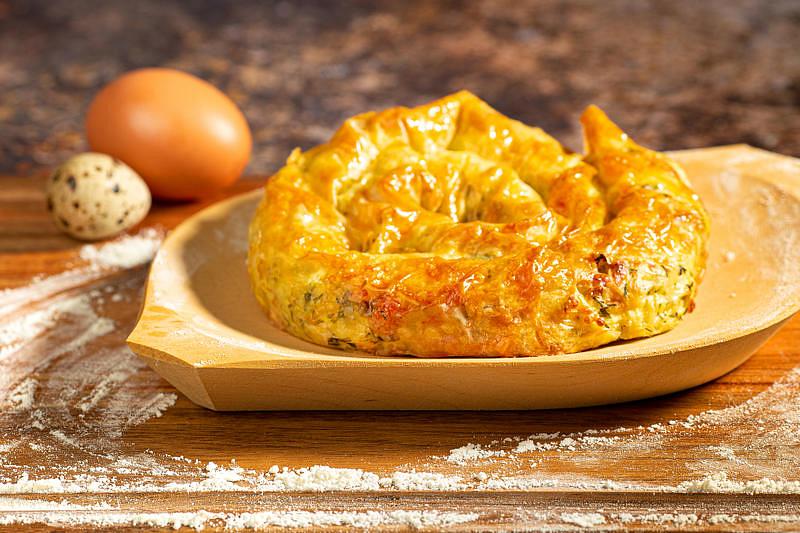“Dobrogean Pie” officially recognized as Romanian product at EU level after negotiations with Bulgaria



Romania will be awarded European recognition and a Protected Geographical Indication (PGI) label for the "Dobrogean Pie" (Plăcinta Dobrogeană) product, despite nearly two years of opposition from Bulgaria.
"An agreement was reached by which Romania will receive European recognition and register the product 'Dobrogean Pie PGI' in the Official Journal of the European Union, with all rights, for an unlimited period, after the latest diplomatic negotiations between the Ministries of Agriculture in Romania and Bulgaria, in dialogue with the Directorate-General for Agriculture and Rural Development (DG Agri) of the European Commission (EC). Bulgaria's opposition is based on the common history of the Dobrogea region, which included territory in Bulgaria, and our neighbors have made determined and sustained opposition for almost two years," said Ionuț Diaconeasa, a counselor in the Directorate-General for European Affairs and International Relations of the Ministry of Agriculture and Rural Development (MADR), cited by G4Media.
He specified that Bulgaria will have the right to use the name "Dobrudzhanka banitsa" only at the local level in the region south of Constanța county and without PGI recognition, with Cyrillic or Latin characters, for a period of 10 years, although it initially requested 15 years. Bulgaria cannot export the product with the name translated into Romanian as "Dobrogean Pie."
"The fact that other states are following our efforts, and in this case, our Bulgarian neighbors, demonstrates the notoriety and exceptional quality of Romanian products, which are highly appreciated in the market and are slowly making their way both on the European market and in the register of products recognized by the European Commission for their quality," added Diaconeasa.
Efforts to obtain European, PGI recognition of this product began in 2017, the year in which the Tradiţional Moesis Association was established with the aim of promoting traditional Romanian products and producers, as well as building the identity of Romanian products both domestically and internationally. A year later, in December 2018, the documentation was submitted to MADR for obtaining European recognition of the "Dobrogean Pie - Protected Geographical Indication" product. The application was published in the Official Journal of the EU in February 2021. Bulgaria filed a motivated statement of opposition. Starting in July 2021, the EC invited the opponent and the applicant to start consultations.
The "Dobrogean Pie" is a partially baked, frozen, and raw-frozen pastry made from sheets filled with salted Telemea cheese, mixed with sheep cheese and eggs. The sheets of the product are obtained by stretching and pulling the dough. The sheets with filling are rolled, creased, and placed in a spiral shape in round trays.
The pie is salty and has a soft, tender consistency due to the mixture of egg and yogurt poured on top, compared to other products of the same type that have a crunchy consistency with a slightly brittle surface. Another difference from other products of the same type is the use of non-frozen dough for the sheets, with fresh dough being prepared for each batch of the finished product.
To date, Romania has 10 products recognized on European quality systems, nine of which have PGI, respectively: Topoloveni plum jam, Sibiu salami, smoked novac from Tara Barsei, smoked Danube herring, Plescoi sausages, Sibiu Telemea cheese, Saveni Kashkaval cheese, traditional salad with Tulcea pike roe, traditional salad with carp roe, and one, Ibanesti Telemea cheese, with Protected Designation of Origin (PDO). The European register lists 1,760 products overall.
(Photo source: Dan Motreanu on Facebook)